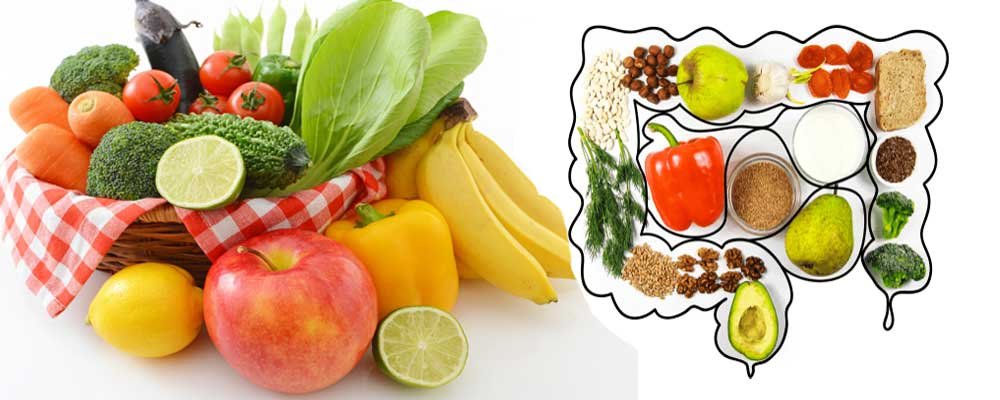While the exact causes of prostate enlargement (also known as benign prostatic hyperplasia, or BPH) are not fully understood, diet is believed to play a role in its development and progression. Studies have suggested that a diet high in saturated fat and red meat, and low in fruits and vegetables, may increase the risk of developing BPH. On the other hand, a diet rich in plant-based foods and healthy fats may help prevent or slow the progression of BPH
Here are some specific dietary recommendations to help prevent or manage BPH:
Increase your intake of fruits & vegetables:
Fruits and vegetables are rich in vitamins, minerals, and antioxidants that can help prevent cellular damage and inflammation in the prostate. Aim for at least 5 servings of fruits and vegetables per day, and try to include a variety of colors and types.
Choose healthy fats:
Healthy fats such as those found in fish, nuts, seeds, and olive oil have anti-inflammatory properties and may help reduce the risk of BPH. Avoid saturated and trans fats found in red meat, fried foods, and processed snacks. Healthy fats such as those found in fish, nuts, seeds, and olive oil have antiinflammatory properties and may help reduce the risk of BPH. Avoid saturated and trans fats found in red meat, fried foods, and processed snacks.
Limit alcohol & caffeine:
Excessive alcohol and caffeine intake can irritate the bladder and worsen urinary symptoms associated with BPH. Limit your intake of alcohol to no more than 1-2 drinks per day, and avoid caffeine in the evening to avoid disrupting sleep.
Consider supplements:
Some supplements, such as saw palmetto and beta-sitosterol, have been shown to improve urinary symptoms associated with BPH. However, consult your urologist before taking any supplements, as they may have interaction with other medications or have side effects.
Avoid spicy & acidic foods:
Spicy and acidic foods, such as hot peppers and citrus fruits, can irritate the bladder and worsen urinary symptoms associated with BPH. If you experience symptoms after consuming these foods, try to avoid them or limit your intake.
Eat more fiber:
A high-fiber diet has been associated with a lower risk of BPH. Fiber helps regulate bowel movements and reduces constipation, which can put pressure on the prostate and worsen urinary symptoms. Whole grains, beans, nuts, and seeds are all high in fiber.
Drink plenty of water:
Staying hydrated is important for overall prostate health. Drinking plenty of water helps flush toxins out of the body and keeps the urinary tract healthy. Aim for at least 8 cups of water per day, and avoid drinking too much fluid before bedtime to reduce nighttime bathroom trips.
Cut down on processed foods:
Processed foods, such as packaged snacks and fast food, are often high in sodium and preservatives, which can irritate the bladder and worsen urinary symptoms. Try to limit your intake of processed foods and opt for fresh, whole foods instead.
Pay attention to portion sizes:
Overeating and being overweight can increase the risk of BPH. Paying attention to portion sizes can help you maintain a healthy weight and reduce the strain on your prostate.
Avoid smoking:
Smoking has been associated with an increased risk of BPH and prostate cancer. Quitting smoking can improve overall prostate health and reduce the risk of other health problems.

It's also worth noting that some foods and supplements may hurt prostate health. For example, calcium supplements and excessive dairy intake have been associated with an increased risk of prostate cancer. It's important to speak with your healthcare provider about any dietary concerns and to ensure that you are getting a balanced diet that meets your individual nutritional needs.
Overall, making dietary changes is just one aspect of managing prostate enlargement. It's important to work with your healthcare provider to develop a comprehensive treatment plan that may include lifestyle changes, medication, and/or surgery to effectively manage your symptoms and improve your quality of life.
Dr. Amit Goel is a Consultant Laparoscopic/ Robotic Urologist & Renal Transplant Surgeon. He has over 15 years of experience in successfully treating complex urological diseases. His expertise includes diagnosing & treating Kidney stones, prostate enlargement, prostate cancer, kidney cancer, bladder cancer & incontinence, male infertility & erectile dysfunction.
